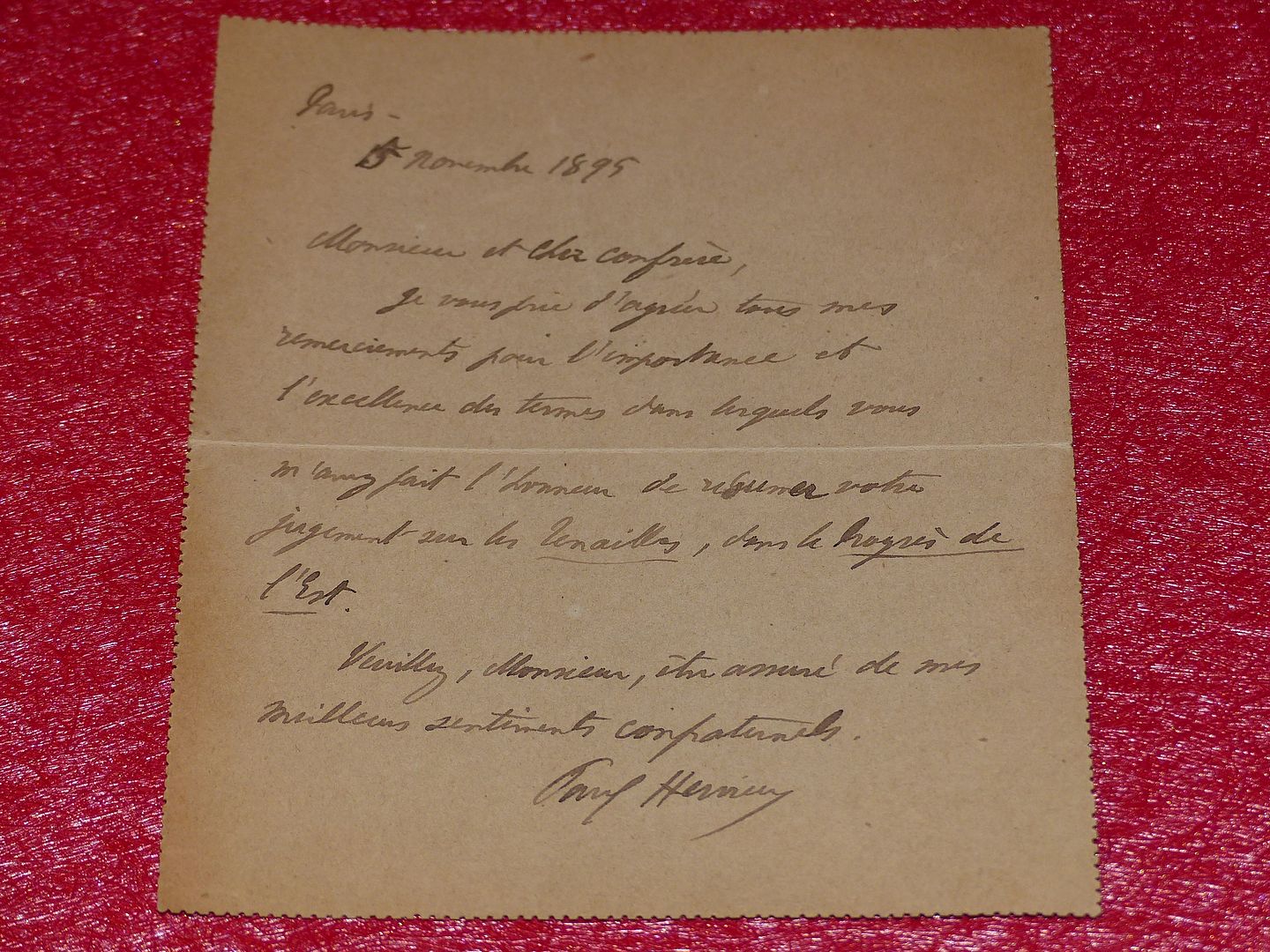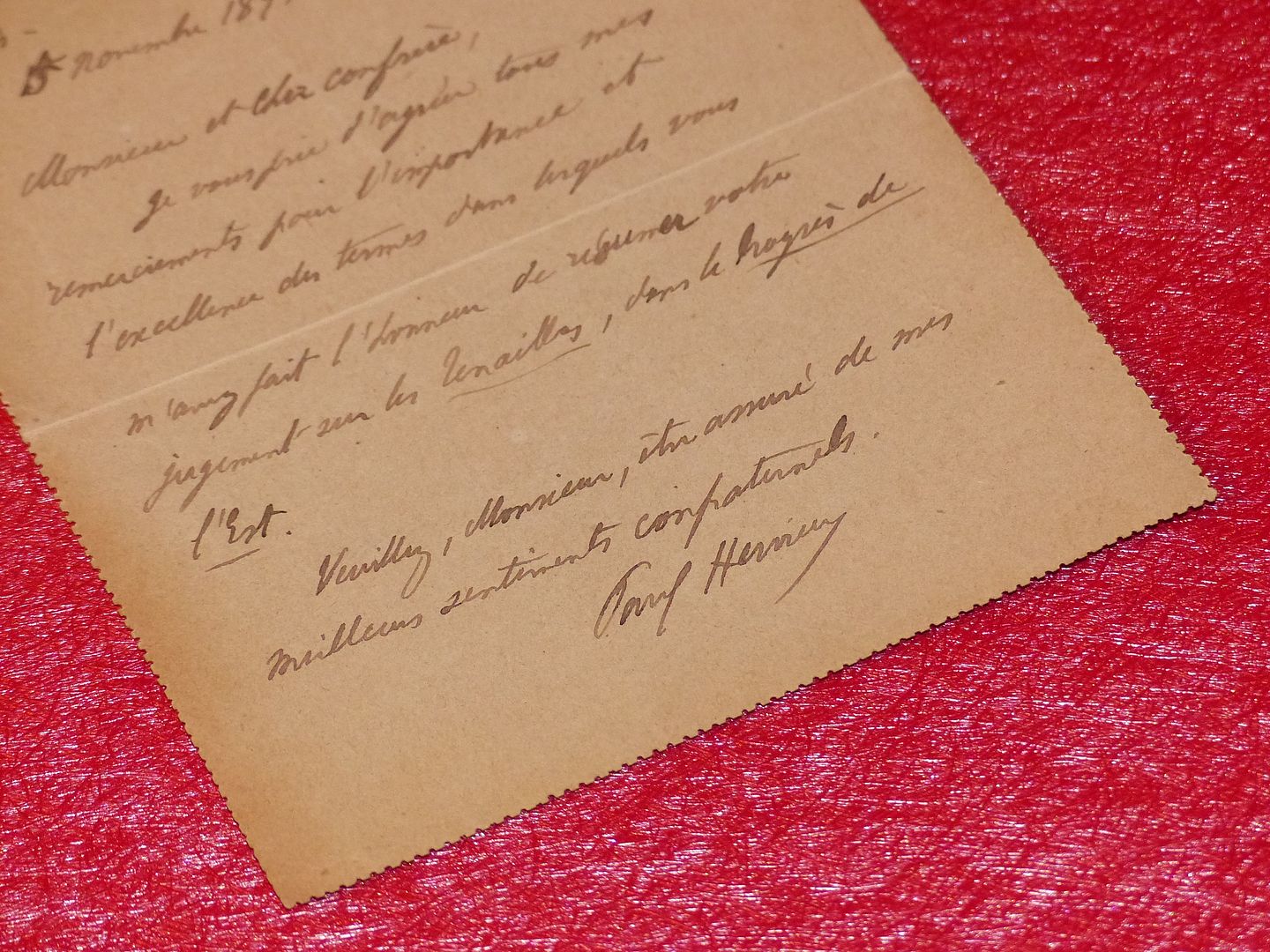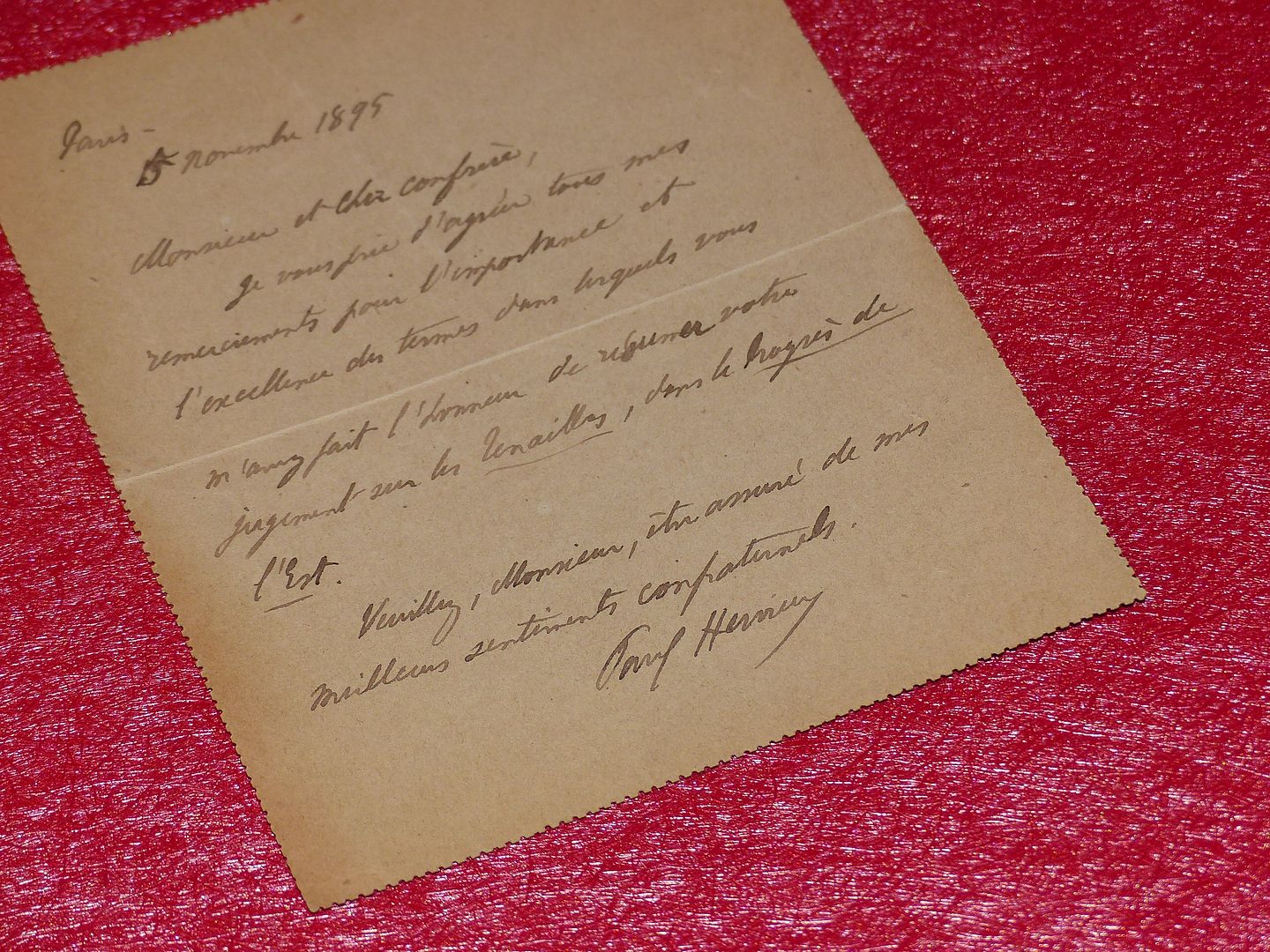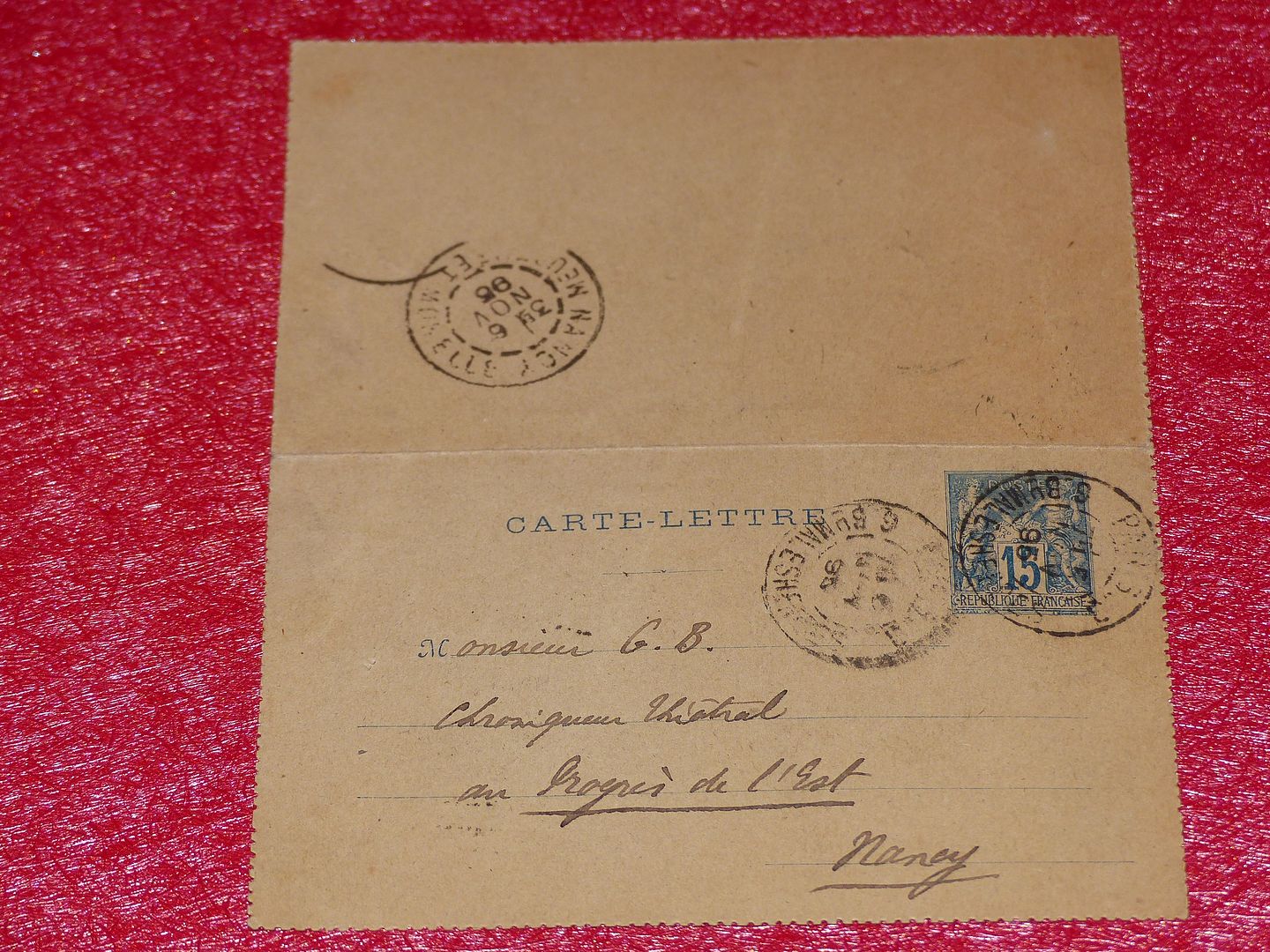[SIGNED AUTOGRAPH LETTER - 19th/20th century FRENCH LITERATURE]
-
On blue gray paper
“Letter Card” with printed stamp
Circulated
addressed to G.[eorges] B.[oulay]
Theater columnist at Progrès de l’Est
"Sir and dear colleague, my thanks for the importance and excellence of the terms in which you have done me the honor of summarizing your judgment on the pincers in the Eastern Progress..."
Paul HERVIEU
1857-1915
Paul Hervieu
President
Society of Men of Letters
1900-1902
Armchair 12 of the French Academy
Journalist, writer, playwright, poet
Paul Hervieu, born September 2, 1857 in Neuilly-sur-Seine and died October 25, 1915 at his home
in the 16th arrondissement of Paris, is a French novelist and playwright.
Biography
Coming from a bourgeois family, he first intended for the bar, became a lawyer and spent some time in political circles. In 1881 he obtained a position as embassy attaché in Mexico, which he did not keep for long. Interested above all in literature, he devoted himself mainly to writing, while attending literary and social salons, such as those of Madame de Pierrebourg, who was his mistress, and of Madame Émile Straus,
where he rubbed shoulders with writers, Marcel Proust, Paul Bourget, Henri Meilhac, Ludovic Halévy, Guy de Maupassant;
aristocrats, Princess Mathilde, Prince George Bibesco; actors like Réjane
or Lucien Guitry and artists like Edgar Degas.
In 1883, his long friendship with Octave Mirbeau began, whose confidant he became. That year he collaborated, under the pseudonym Liris, in the short-lived magazine founded by his new friend and to which Alfred Capus and Étienne Grosclaude also collaborated, Les Grimaces, a satirical and anti-opportunist, but also anti-Semitic weekly, intended according to Mirbeau “to make this whole false world of unpunished financial brigands grimace”. However, like Mirbeau, who would be one of the most committed Dreyfusist intellectuals, Hervieu will be Dreyfusard, which caused him to fail in his first academic application.
Concerned by the social problems of his time, he exposed them in psychological and worldly novels, in the style of Paul Bourget, and in plays, which were often moralizing. Wanting to rigorously analyze a situation and show its inevitable consequences, he features characters who behave with extreme logic, without the slightest humanity, attentive only to the feeling of duty and social conventions. This rigidity leads to dramatic outcomes that seem outrageous today. The plot takes place in aristocratic or worldly environments: the adulterous woman in L'Énigme and in Le Réveil, the remarriage of a divorced woman in Le Dédale, and the care owed to children, whatever the consequences, in The Torch Run.
In 1900, he succeeded Édouard Pailleron in chair 12 of the French Academy.
Edmond de Goncourt said of him: “Little Hervieu has a curious voice, it's like the distant voice of a sleepwalker that his sleeper would make speak. »
-
1 sheet, 1 beautiful handwritten page
1 sheet, 1 beautiful handwritten page
(unfolded: 14x11cm)
Paris, November 15, 1895
-
[From Georges or Louis Boulay]
-
Good general condition, various minor usual defects
see visuals...
-
Beautiful rare document
As always, combined shipping costs in case of multiple purchases...



